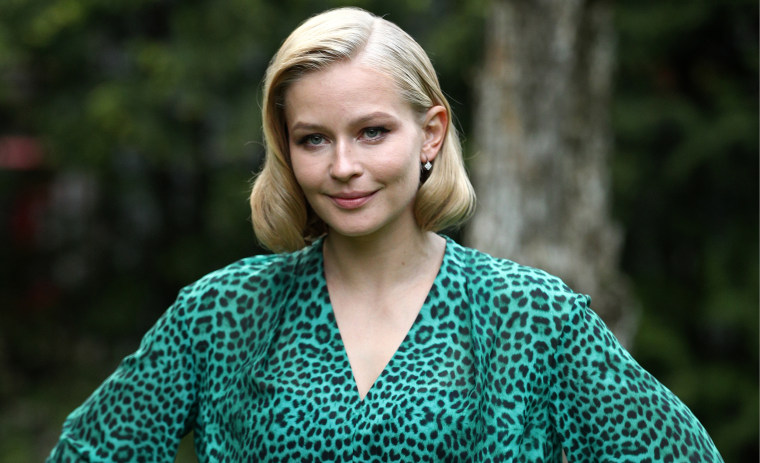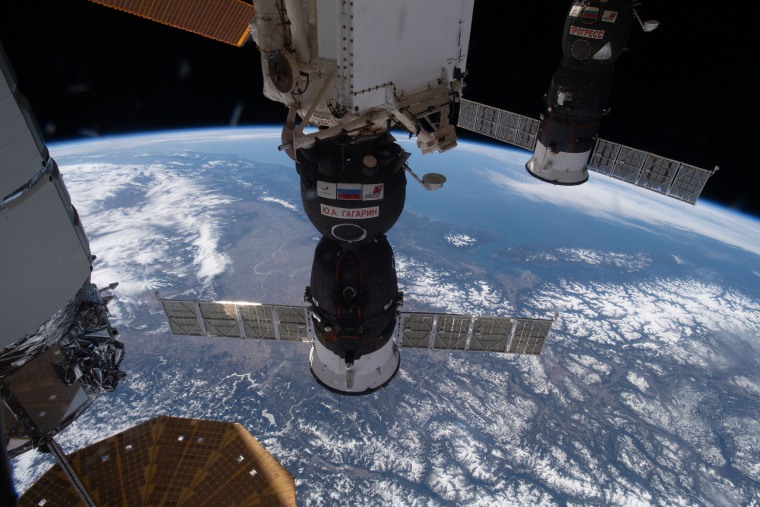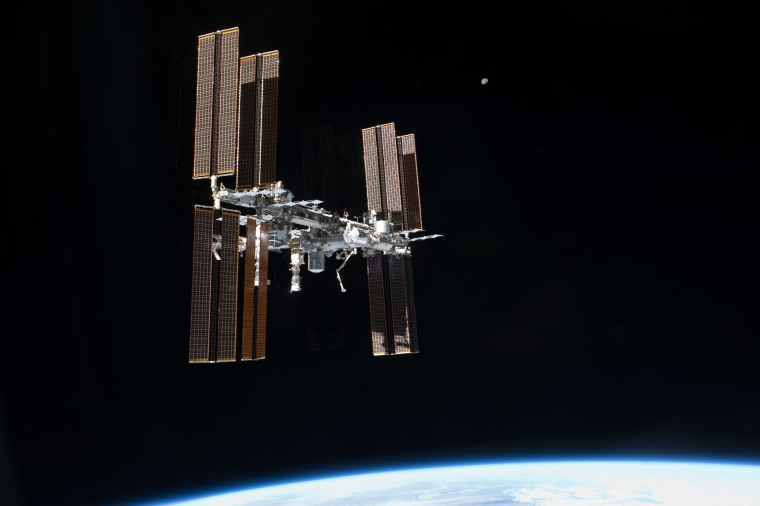MOSCOW — Humans have explored the space around planet Earth for 60 years now, meaning most of the dramatic "firsts" have long been claimed in the history books.
But Russia figures it's good for one more: The first film to be shot in outer space. And, just like the old days, it’s in a race with the United States to claim the achievement.
The Russian space agency, Roscosmos, announced Thursday that it had selected its crew to headline the film, which will be called "Challenge."
The movie will star the actor Yulia Peresild, 36, and be directed by Klim Shepenko, 37.

The effort was first announced last year, shortly after the actor Tom Cruise and NASA announced their own collaboration to make a movie on the International Space Station.
Peresild, who has starred in a number of Russian movies, beat out hundreds for the role after a casting call that promised a chance at “international fame.”
The team will take up two of the three seats aboard the October launch of Russia’s Soyuz mission to the orbiting space station. Before that launch, however, they will undergo elements of Russia’s standard cosmonaut training.
“Among other things, they will have to take centrifuge tests, vibration stand tests, perform introductory and training flights on a zero-gravity plane, undergo parachute training,” Roscosmos said.
The "space drama" is a pet project of the agency’s bombastic administrator, Dmitry Rogozin.
Very little is known about the plot, which in many ways seems secondary to the spectacle.

When Russia announced the project last year, Konstantin Ernst, the head of Russia’s Channel One — which is working with Roscosmos on the film — said that it would not be a science fiction film, but a realistic depiction of near-term space travel.
“Its a movie about how a person in no way connected with space exploration, due to various reasons and personal debt, ends up a month later in orbit,” Ernst said in a September 2020 interview. “That’s all I can tell you.”
The casting call was issued in November, seeking a female actor between the age of 25 and 40, weighing between 50 and 70 kilograms (around 110-155 pounds), who could pass a variety of fitness tests.
The decision to fill the October Soyuz flight with a movie crew comes at an uncertain time for Russia’s space program.
Relations with NASA, its partner of the last 20 years, are fraying as tensions in the larger U.S.-Russia bilateral relationship weigh on space cooperation. And Rogozin, as well as other officials, are hinting Russia could soon split from American-led efforts in international space exploration and join up with China.
Rogozin threatened in 2014 to respond to U.S. sanctions by denying NASA rides to the space station aboard Russian rockets, at the time the only means of sending Americans to the $100 billion orbital outpost.
Recently, he’s threatened to pull out of the space station altogether.
In October, NASA paid for its final flight aboard Soyuz. NASA had been dependent on Russia since retiring the U.S. space shuttle fleet in 2011, and last year finally saw new American space vehicles come online. Another American flew on an April launch, but no money directly changed hands.
Russia is now left to look for other means to help subsidize launch costs.
One of those obvious sources — beyond funding from the state television network Channel One — is space tourism.
Another Soyuz will launch in December, and rather than fill those seats with Russian cosmonauts, Moscow announced Thursday that two Japanese space tourists will take the ride.
Roscosmos is no stranger to launching space tourists — so far, they have all been wealthy business people or celebrities — to subsidize human spaceflight efforts, but the agency has not done so in more than a decade.
The last space tourist to fly on Soyuz went up in 2009, just before NASA retired its space shuttles and became entirely reliant on Russia’s Soyuz.
One of the two tourists on the December flight will be Japanese billionaire Yusaku Maezawa.
The businessman made headlines in 2018 when he announced he had paid for a flight around the moon on SpaceX’s still-unfinished Starship, a massive reusable vehicle designed to colonize Mars.
Maezawa appealed for eight applicants from around the world to join him on the flight, which is scheduled for 2023.

